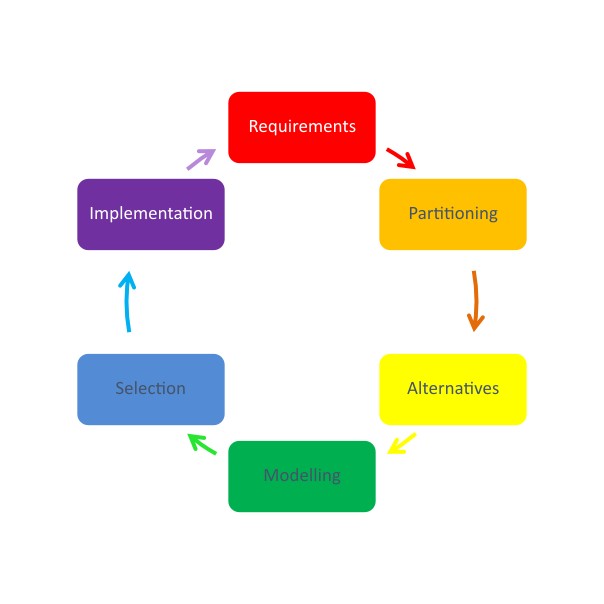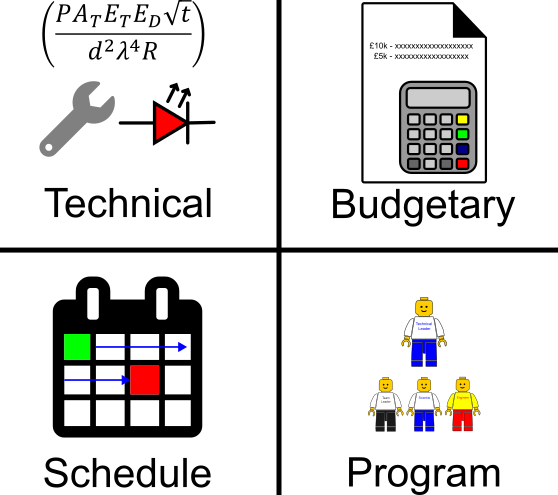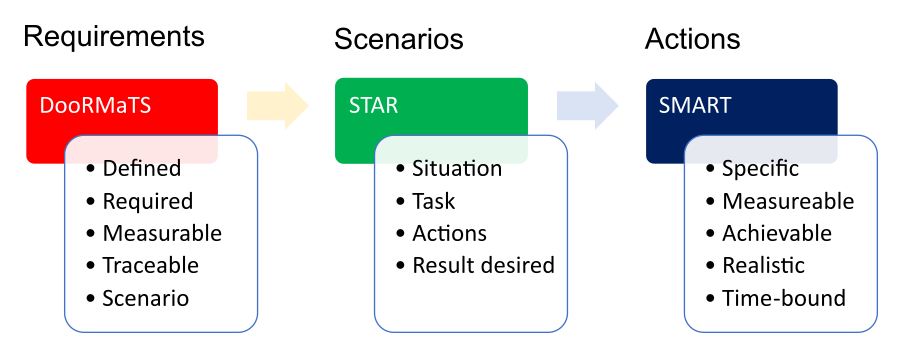Research Project and Technical Leadership Training
As a team at Vibrat-Ion, we have over 75 years of experience both in providing technical leadership and project management, and in training others in those skills.
We have found through experience that although there are a lot of project management training programmes available, in the main they are aimed at building, engineering or industrial projects where the outcome is largely predictable. But, they are not so well suited to the technical leadership of research projects – where there is a great deal less certainty or predictability.
Therefore, we have developed our own frameworks for aiding in the technical leadership of specifically research projects, based on the well-known concepts of systems thinking and systems engineering.
We can provide our Systems Thinking for Project and Technical Leadership training course to your organization too, together with the materials that we have developed for our own purposes. The aim is to provide training in improving technical leadership skills to scientists and companies wishing to upskill in that area.
We have successfully delivered this course, or aspects of it, to dstl, part of the UK Ministry of Defence; as part of the doctoral training centre at the University of Warwick; as part of the professional training provided by the Universities of Maryland Baltimore and Baltimore County, Nottingham Trent University; and to various companies and scientific societies.
Here is an example of part of the training – in this case looking at types of quad chart that are useful for research project technical leads:
Who is it aimed at?
This training is aimed at anyone who is leading research projects or work-packages, or who is aiming at taking on such leadership. The core audience will be those at postdoc, scientist, senior or principal levels. But, the approaches we cover are designed to be scalable from small projects up to very large – consequently the coure contains development opportunites for scientists/researchers or research managers at any level.
Underlying concept

We use an iterative systems framework model for technical leadership for research projects – based on widely known concepts in Systems Thinking and Systems Engineering. During the training course we explain the history of this method of project/technical leadership, dating back to military research in the Second World War, and the nomenclature associated with the systems approach. The course breaks down each of the components of the iterative framework, as well as how to put them together, to successfully lead research projects. We also explain the parallels between this approach to technical and project leadership and other potential project management strategies, such as PRINCE2 or IEEE 1220.

The training program also looks at understanding why previous research programs failed and how and when this could have been averted. We describe how and why to focus on understanding “residual uncertainty” vs investment, and “framework dynamics”: how the emphasis on different elements in the interative cycle will vary as the project evolves and the risk and uncertainty reduce.
Delivery
The Systems Thinking for Project and Technical Leadership training course is a five-day (30 hour) training course which can be delivered in either a one week a single block, or over the course of five weeks at one day per week.
- 15 hours – Didactics/Workshops
- 10 hours – Collaborative Exercises
- 5 hours – Personal project work
The cost of the course is £1000+VAT per trainee irrespective of whether the course is provided as a contiguous block or a series of individual days. We have delivered the course to groups from 5 to over 100 trainees (max trainee/trainer ratio of ~3). The minimum viable cohort is 4 as there are aspects of the course that require a sufficient number to train concepts in communication, a vital skill in technical leadership.
If you want to apply as an individual, please email us at info@vibrat-ion.com and we will discuss how we can group you with other individual applicants to provide the training.
For companies who desire it, we can also provide an assessment of the skill set gained. This assessment normally comprises 3 parts: a short, written exam; an oral exam; and delivery of a short project report. Note, that this project report is intended to be completed after the training, as part of the trainee’s standard work, where they can demonstrate how they have used the skills they have learned whilst actually technically leading a research project.

Benefits
For Individuals:
- Enhanced Skills and Knowledge: Gain an easy to explain, structured approach to research technical leadership and project management, encompassing good practice in project design and breakdown, continuous review, decision making, and risk management.
- Improved Career Prospects: Systems thinking is a widely recognized skill and is valued by employers, boosting your resume and opening doors to new opportunities.
- Increased Confidence: Lead complex projects with greater efficiency and effectiveness, leading to improved career satisfaction and self-assurance.
- Adaptability and Flexibility: Applying systems thinking principles to a diverse range of projects, regardless of size or industry, makes you more efficient and productive.
For Organizations:
- Project Success: Systems thinking for Project and Technical Leadership fosters structured planning, risk management, and continuous monitoring, leading to higher project success rates, meeting stakeholder requirements and significantly reduced technical and financial risks.
- Increased Efficiency and Productivity: Predefined, adaptable frameworks and project milestones, combined with clear directives and responsibilities enhance research project team effectiveness and reduce wasted time and investment.
- Improved Stakeholder Engagement: Whole project stakeholder review processes minimize risk of research outputs failing to provide the right support for decision makers.
- Reduced Risk and Cost Overruns: Proactive technical, resource and financial risk management and control mechanisms identify and mitigate potential risks and project-killers before they escalate, saving time and money.
- Competitive Advantage: Implementing Systems Thinking for Project and Technical Leadership best practices can attract and retain top talent, boost organizational credibility, and secure more repeat business.
In conclusion, ongoing technical leadership development is an investment that yields valuable returns. By nurturing your staff’s skills and potential, you build a resilient, adaptable, and future-proof organization.